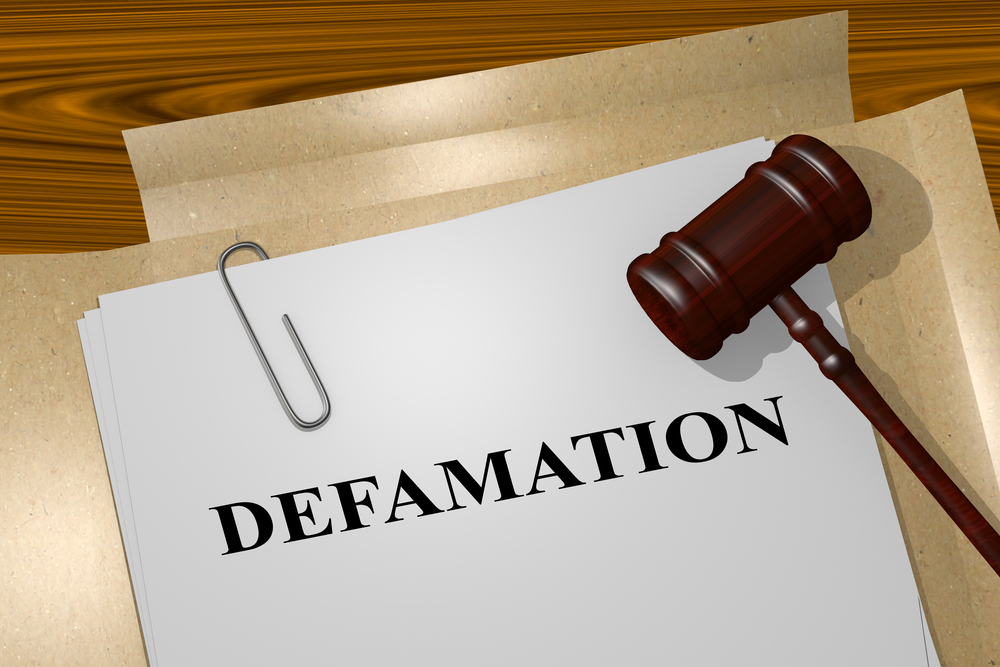
Historically, claims for Defamation (both libel and slander) have involved celebrities and those in the media lime-light. The recent headlines relating to Rebel Wilson, the Australian actress, writer and producer who had her $AUD4.5 million damages award slashed to $AUD600,000 on appeal… The Rebel Wilson case began in 2015 when the Australian Women’s Day magazine published a story that Ms Wilson misled the public regarding her birth, name, age and childhood. The story was picked up by the international media and published across the globe.
Ms Wilson claimed the articles portrayed her as a “serial liar”. She claimed for substantial damages which included a claim that the information published resulted in her being rejected from being cast in two movies.
The Supreme Court of Victoria, Australia, found in Ms Wilson’s favour and awarded her $AUD4.5 million, the largest ever payment for defamation ever awarded by an Australian court. However, in June 2018, this decision was overturned on appeal on the grounds Ms Wilson failed to prove the publisher, Bauer Media, was responsible for her missing out on the movie roles. This is a clear case in hand which shows that the international legal system expects a claimant to prove their losses, no matter how famous they are.
The UK courts equally apply legal principles strictly. Steve Morgan, a businessman had launched a claim against the Daily Mail for an article and alleged it was defamatory on the grounds that it depicted him as greedy and unethical. The article was headlined as “Building tycoons using discounts to snap up family homes” and made reference to the terms “morally unacceptable” and “ fat cat bought six houses…” The courts need to apply the law carefully and ascertain what the ordinary natural meaning of these words are. Mr Justice Nicklin found that meaning was an expression of opinion.
Where the words used are obviously defamatory in their ordinary natural meaning, the courts will award damages. Earl Spencer, Princess Diana’s brother was recently awarded damages for a claim made in the press that he acted in an “unbrotherly, heartless and callous way” towards his sister. The Earl was able to show that publication of the words caused harm to his reputation and he suffered losses as a result.
Prior to a claim being made for Defamation, we take care to ensure that we consider the facts of each case carefully and in particular, whether a court is likely to finds that the statements made or published will be held to have caused serious harm to reputation.
Damages for defamation
In English law, there are three types of damages available for defamation:
- General damages – this is used to compensate for hurt feelings, distress and humiliation, as well as to vindicate the victim’s good name.
In Rahman v ARY [2016] EWHC 3110 (QB), where an award of £185,000 in damages was made, the judge expressly stated that “the sum I am awarding should be enough to convince any fair-minded observer of the baselessness of these serious charges and to afford some measure of solatium in respect of the hurt and distress undoubtedly caused”.
In this case, the claimant was a prominent broadcaster in Pakistan. He brought a case for defamation after a Pakistan news and current affairs TV programme, “Khara Sach” broadcast in Urdu, was seen in the UK through Sky and Virgin Media, and an ARY News item. He claimed the broadcast portrayed him as a traitor to Pakistan, consorting with Pakistan’s enemies, doing their bidding, and broadcasting subversive and misleading TV programmes which undermined Pakistan.
Although the defences of truth/justification were struck out before the trial, there was no withdrawal or apology from the defendant and the lack of any mitigating behaviour did, in part, result in the court making the large damages award[1]
- Aggravated damages – if the defendant’s conduct during the proceedings increases the claimant’s distress, the court may award aggravated damages. However, the threshold for allowing aggravated damages is high.
In McCarey v Associated Newspapers (No 2) [1965] 2 QB 86, [1964] 3 All ER 947 it was held that aggravated damages should only be awarded in a case where the defendant’s conduct has been calculated in order to make a profit for themselves, which may well exceed the compensation payable to the claimant.
- Special damages (also known as exemplary damages – these may be available in cases where the claimant can show they have suffered a quantifiable loss as a direct and foreseeable result of the defamation.
In Collins Steward v Financial Times [2004] All ER (D) 254 (Oct), the claimants, a City broker firm, claimed for £230 million special damages claim quantified by reference to the fall in the company’s share price following the publication of four articles by the defendant in 2003.
The court struck out the claim of special damages, stating share price was not an appropriate guide to a company’s loss as “the reasons why a share is traded at a particular price … are unknown, or, at best, matters of conjecture”. The claim for such an amount was viewed untriable. The Financial Times later paid £300,000 damages and an estimated £2.2 million in costs to the claimant and printed an apology[2].
- In ReachLocal UK Ltd v Bennett [2014] EWHC 3405 (QB), one of the first cases to be tried following the coming into force of the Defamation Act 2013, special damages of £241,945 were awarded to an online marketing and advertising company which had suffered a campaign of defamation against it by a rival. The award of special damages represented the loss of business based on customers’ decisions not to proceed with advertising which had been booked but not paid for. The court held sums paid to customers to encourage them to stay following the defendant’s campaign to discredit the claimant were recoverable as reasonable mitigation[3], as was the cost of employing a public relations consultant to address the reputational damage suffered by the claimant.
In summary
If you have been a victim of defamation, it is important to talk to an experienced defamation solicitor in London to ensure you are advised correctly on the type of damages you can claim for. Defamation cases are notoriously complex and, as has been illustrated above, large awards are often appealed as most have insurance to cover court costs; a luxury not available to many claimants. An experienced solicitor understands the tactics of making a claim, preparing carefully worded pre-action letters before proceedings are commenced and working with you on a strategy to reach a settlement.
Saracens Solicitors is a multi-service law firm based in London’s West End. We have dedicated and highly experienced civil litigation solicitors who can advise you on all defamation matters. For more information, please call our office on 020 3588 3500.
Do you have any comments to make on this article? Please feel free to add them to the section below.
[1] Vale, J, Defamation: “Gravity, scale and persistence” in Shakil-Ur-Rahman v ARY Network Ltd, Ent. L.R. 2017, 28(3), 99-102
[2] https://www.theguardian.com/media/2006/jan/17/financialtimes.citynews2
[3] A claimant has a duty to mitigate further loss if they have suffered a breach of duty or contract.
Table of content
Recent Posts
Cryptoasset Tax Changes From January 2026
The world of cryptoassets is in a constant state [...]
UK Housing Market – 2025 Update
Buying your first home in the UK is not a [...]
Can You Put Digital Assets In A Trust? – How To Protect Your Digital Estate
In an era where our lives are increasingly played out [...]








